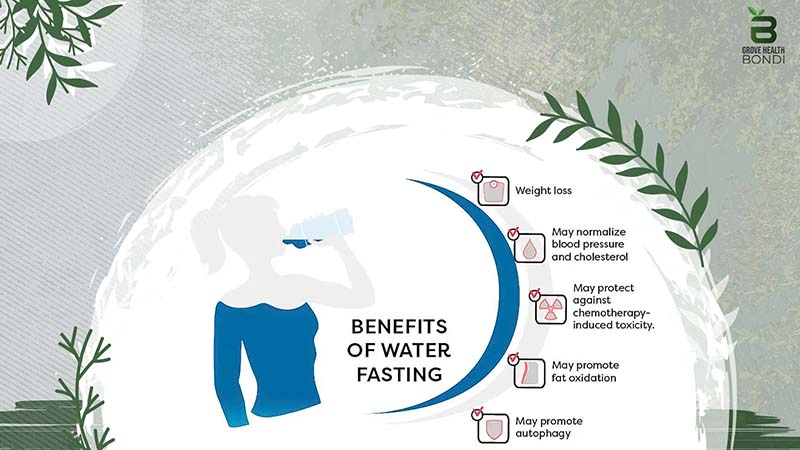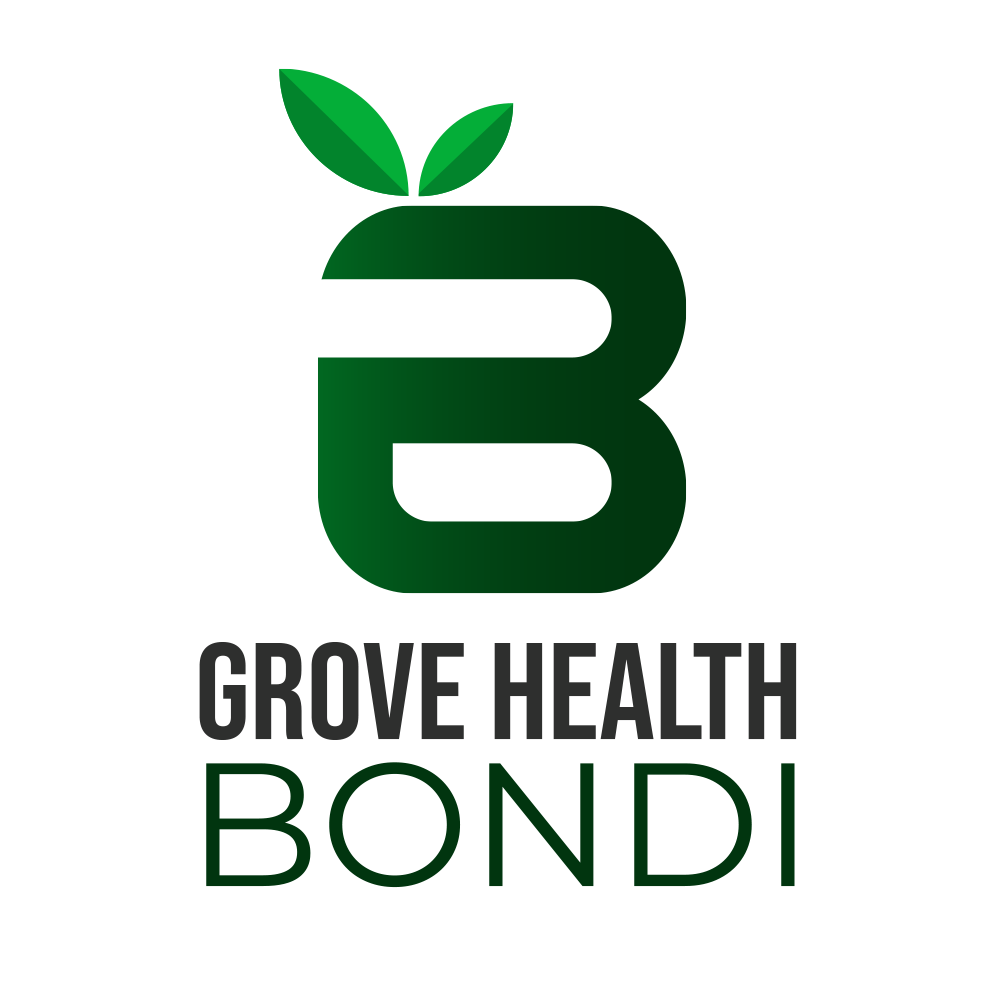Water fasting, or fasting with only water, is becoming a popular weight loss trend recently. While it has numerous benefits, it also comes with several dangerous risks that you should understand before trying it.
Everyone knows that to lose weight, we need a healthy diet combined with exercise. However, understanding this doesn’t mean everyone can do it. Many people turn to quicker and more drastic weight loss methods like water fasting. While this method can be effective, if not done correctly, it can harm the body in the short term and pose long-term health risks. Let’s explore this weight loss method further with Grove Health Bondi.

1. What is Water Fasting?
Water fasting is a weight loss method where you fast and drink water or consume water-based foods like soups and vegetables for a set period, which can range from a week to a month.
This diet method is quite controversial and not recommended by doctors as it causes an imbalance in the body. If you intend to try it, first get a blood test to check your health accurately. Then, consult a nutrition expert to ensure safety.

2. Why is Water Fasting Becoming Popular?
Many people believe that fasting and drinking water can be very beneficial for the body:
- Helps in quick weight loss
- Improves kidney function
- Enhances liver health
- Keeps the body hydrated
- Removes toxins from the body
3. Benefits of Water Fasting
Water fasting can offer numerous benefits if done under medical supervision:

3.1. Weight Loss
This method can be very effective for weight loss if done correctly. You may notice significant changes in your body within just seven days. However, you should not lose more than 1.1 kg per week as it can cause immune system problems.
3.2. Detoxification
Drinking plenty of water can help detoxify the liver, kidneys, and bladder. However, this method comes with many risks and should be done under medical supervision.
3.3. Soothes the Stomach
Fasting and drinking a lot of water can help rehydrate the body when you have food poisoning or digestive issues.
3.4. Lowers Blood Pressure
Studies have shown that water fasting under medical supervision can be very beneficial for people with high blood pressure. However, this method carries many risks, so caution is needed.
3.5. Increases Insulin Production
Water fasting can help balance blood sugar levels and increase the body’s insulin production. Insulin is crucial for controlling blood sugar levels.

4. Precautions When Doing Water Fasting
4.1 Limit to 24-72 Hours
This is the maximum amount of time you should maintain this diet. After 72 hours, doctors recommend gradually returning to a normal diet over 10 days before attempting water fasting again. Always consult your doctor before starting.
4.2. Don’t Rush
Results vary based on individual bodies. Don’t rush or try to speed up the process, as it can put you in dangerous situations. Initially, don’t skip a large meal completely; instead, start with small meals like smoothies or healthy snacks.
4.3. Risks of Water Fasting
Like other diets, water fasting can cause certain risks if not done correctly:
- Vitamin and mineral deficiencies
- Unhealthy weight loss and weakened immune system
- Lack of healthy fats affecting the breakdown of harmful fats
- Imbalance in gut bacteria due to lack of probiotics from natural foods
- Dizziness
- Muscle and limb pain from protein deficiency
- Important minerals deficiency affecting cholesterol breakdown, leading to heart diseases
- Thyroid dysfunction
- Excessive water intake can strain the bladder, causing urinary tract infections
- Hormonal imbalance
- Dehydration as drinking too much water can quickly exit the body. Absorption from daily diet is more effective.
- Orthostatic hypotension, leading to accidents at work or home
- Increased uric acid production, causing dangerous complications
- Higher risk of diabetes and chronic kidney disease
- Stomach acid production continues despite fasting, causing heartburn and acid reflux
- Fatigue, exhaustion, migraines, and many other side effects

5. FAQs About Water Fasting
Before starting water fasting, you may have many questions. According to Grove Health Bondi, the best person to consult is your doctor. Here are some common questions and answers compiled by Grove Health Bondi:
5.1. How Long Should I Do Water Fasting?
This diet should only be done for up to 72 hours. After this period, return to a normal diet and wait 10 days before attempting it again.
5.2. Who Should Avoid Water Fasting?
You should avoid this diet if you have:
- Asthma
- Diabetes
- Cardiovascular diseases
- Low blood sugar
- High blood sugar
5.3. Can I Drink Tea During Water Fasting?
Technically, water fasting means drinking only pure water. However, drinking tea isn’t harmful and can provide some benefits by adding natural nutrients. Avoid milk tea.
5.4. How Much Water Should I Drink During Water Fasting?
Drink plenty of water to remove toxins and maintain energy. Experts recommend drinking about 2-3 liters of water daily, but not more than 200ml each time.
5.5. Should I Exercise During Water Fasting?
Avoid exercise as your body lacks nutrients, which can make you very tired. If you take supplements, you may exercise, but it’s best to consult a doctor.
5.6. How Should I Start Water Fasting?
Plan the day you want to start. Gradually prepare your body by reducing sugar, skipping breakfast one day, skipping breakfast and lunch another day, and then skipping all meals and only drinking water on your planned day. Don’t drink more water than recommended (2.2 liters for women and 3 liters for men).
6. Conclusion
In conclusion, Water Fasting can be an effective method for rapid weight loss when done correctly and under medical supervision. It offers benefits such as detoxification, improved kidney and liver function, and weight loss. However, it is essential to be aware of the potential risks, including nutrient deficiencies, weakened immune system, and other health complications. If you are considering Water Fasting, consult with a healthcare professional to ensure it is safe and suitable for your individual health needs. Always prioritize a balanced approach to weight loss that includes healthy eating and regular physical activity. By making informed decisions, you can achieve your weight loss goals safely and sustainably.

